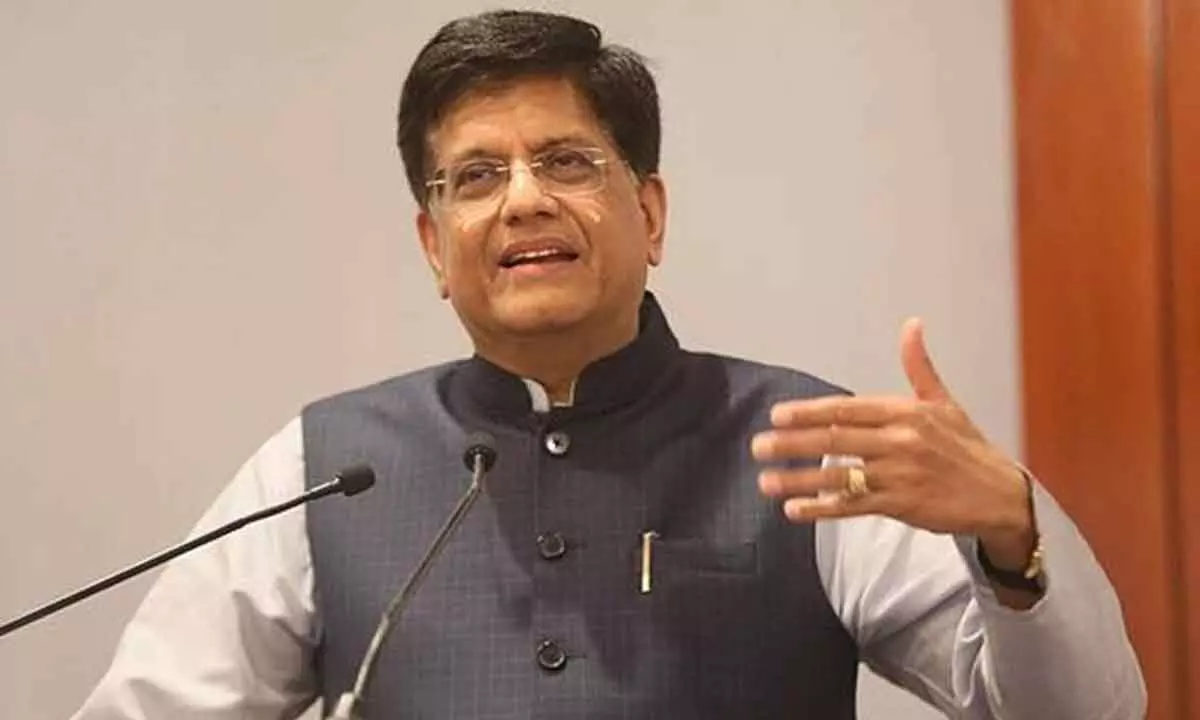India, UAE joint task force reviews economic partnership agreement
Share :

The 11th meeting of India-UAE high level joint task force on investments on Thursday was co-chaired by Commerce Minister Piyush Goyal and Managing Director of Abu Dhabi Investment Authority (ADIA) Sheikh Hamed bin Zayed Al Nahyan, where they reviewed the progress made on the implementation of the Comprehensive Economic Partnership Agreement (CEPA) between the UAE and India.
New Delhi: The 11th meeting of India-UAE high level joint task force on investments on Thursday was co-chaired by Commerce Minister Piyush Goyal and Managing Director of Abu Dhabi Investment Authority (ADIA) Sheikh Hamed bin Zayed Al Nahyan, where they reviewed the progress made on the implementation of the Comprehensive Economic Partnership Agreement (CEPA) between the UAE and India. CEPA had come into force in May 2022, which has helped reduce tariffs on more than 80 per cent of product lines, eliminate barriers to trade and create new pathways for investment and joint ventures. In the first 12 months of CEPA, bilateral non-oil trade reached $50.5 billion, representing a growth of 5.8 per cent compared to the corresponding period a year earlier.
The two countries are aiming to achieve the target of $100 billion non-oil trade by 2030. The joint task force delegations discussed the status of negotiations for the India-UAE bilateral investment treaty, underscoring the need to accelerate the bilateral discussions for an early conclusion of a balanced agreement that benefits both countries and their investors.
The two sides also discussed ways and incentives for encouraging further growth in investment flows from UAE sovereign investment entities into India. In this context, the Indian side shared opportunities for investments in priority sectors like renewable energy, health, semi-conductors and asset monetization sectors in India. In this regard, progress on the creation of the Fast Track Mechanism to facilitate Indian investment into the UAE was also discussed.
The Indian side requested for strengthening the mechanism especially for facilitation of investments in priority sectors like renewable energy and energy transition. Both sides agreed to use this channel as a means of developing more competitive and accommodating ecosystems that can enable the private sector to fully pursue expansion opportunities in each other's markets.
Talks also covered the India-UAE Start-Up Bridge, a joint initiative between the UAE Ministry of Economy and India's Ministry of Commerce and Industry. The bridge is expected to act as a one-stop platform that offers training sessions and knowledge-sharing on important topics such as market access, investment funds, venture capital, incubators and the respective business landscape in each country. Another important agenda topic was the establishment of Abu Dhabi – India Virtual Trade Corridor, which aims to increase overall trade volumes by developing data exchange systems to facilitate paperless trade between the two countries, improving efficiencies and security.
Both sides agreed to continue coordination and cooperation between the respective counterparties of both countries for the early implementation of this milestone. The co-chairs also reviewed the progress on key projects including the food security corridor related investment under I2U2 Framework into India. The project will be instrumental in addressing food security challenges, with the aim of bolstering the supply of essential food items and establishing a resilient value chain between the two nations.
